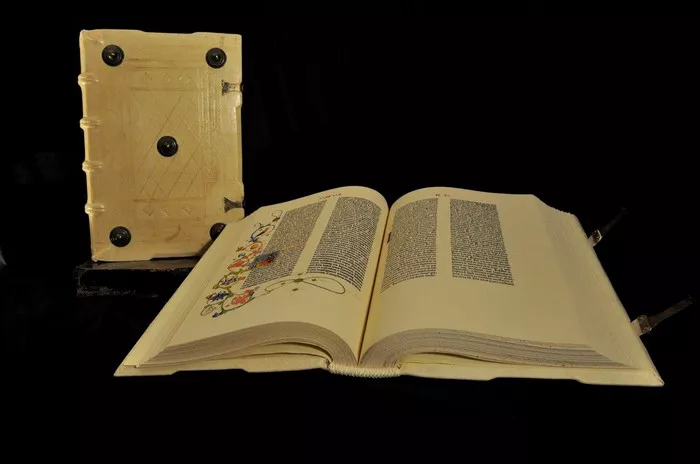The biblical narrative of Noah‘s curse on his grandson Canaan in the book of Genesis has long puzzled scholars and theologians alike. This enigmatic episode, found in Genesis 9:20-27, raises questions about justice, morality, and the interpretation of divine will. Why did Noah, a figure revered for his righteousness, pronounce such a severe curse on Canaan, seemingly without provocation? To understand the significance of this event, it is crucial to delve into the historical and cultural context of the ancient Near East, as well as the theological implications embedded within the text.
Contextual Background: Ancient Near Eastern Perspectives
To comprehend the nuances of Noah’s curse, one must first contextualize it within the broader framework of ancient Near Eastern culture and traditions. In the ancient world, the concept of familial lineage and inheritance held profound significance. Ancestral blessings and curses were believed to shape the destiny of future generations, with patriarchs serving as conduits of divine authority.
Furthermore, ancient Near Eastern societies often employed symbolic gestures and allegorical narratives to convey moral lessons and societal norms. Therefore, Noah’s pronouncement of a curse upon Canaan should be understood within this cultural milieu, where actions carried symbolic weight and consequences transcended individual circumstances.
Interpreting the Scriptural Passage
The biblical account of Noah’s curse on Canaan unfolds shortly after the Great Flood, a cataclysmic event believed to have reshaped the world. As the floodwaters recede, Noah, depicted as the sole righteous man in a corrupt world, plants a vineyard and becomes inebriated from its wine. In his drunken state, he exposes himself within his tent, leading to an incident involving his sons, Ham, Shem, and Japheth.
Ham, upon witnessing his father’s nakedness, responds disrespectfully, prompting Noah’s other sons to cover their father without looking upon him. Upon awakening and learning of Ham’s actions, Noah delivers a curse not upon Ham himself but upon his son Canaan, declaring, “Cursed be Canaan; a servant of servants shall he be to his brothers.”
Theological Interpretations
Scholars and theologians have offered various interpretations of Noah’s curse on Canaan, often drawing upon theological, moral, and allegorical frameworks. One interpretation posits that Ham’s disrespectful behavior toward his father symbolized a broader attitude of irreverence and disobedience, thus warranting divine retribution. Canaan, as Ham’s descendant, became the recipient of this curse, bearing the consequences of his ancestor’s actions.
Others suggest that the curse on Canaan reflects the divine mandate for Israel’s conquest and occupation of the Promised Land. According to this view, the Canaanites, as descendants of Canaan, were destined to be subjugated by the Israelites, serving as a theological justification for Israel’s territorial expansion.
Historical Perspectives
From a historical standpoint, scholars have examined the origins of the curse within the context of ancient Israelite society. Some argue that the curse on Canaan served as a form of tribal propaganda, legitimizing Israel’s dominance over the Canaanite population. By portraying the Canaanites as cursed and inferior, Israelite authors sought to reinforce their own ethnic and religious identity while justifying their territorial claims.
Additionally, the curse on Canaan may reflect tensions between different ethnic groups within ancient Israel. As Israelite society coalesced, narratives such as Noah’s curse may have been employed to assert the superiority of certain tribes or lineages over others, thereby shaping collective memory and identity.
Ethical Considerations
The moral implications of Noah’s curse on Canaan continue to spark debate among scholars and religious communities. Critics have raised concerns about the ethical implications of attributing collective guilt and punishment based on ancestral lineage, arguing that such interpretations perpetuate harmful stereotypes and justify discrimination.
Furthermore, the portrayal of Canaan as inherently cursed raises questions about the theological concept of divine justice and mercy. In contemporary theological discourse, there is a growing emphasis on interpreting biblical narratives through the lens of compassion and inclusivity, challenging traditional interpretations that may perpetuate prejudice or exclusion.
Conclusion
Noah’s curse on Canaan remains a complex and controversial episode within the biblical narrative, inviting diverse interpretations and perspectives. Whether viewed through a theological, historical, or ethical lens, this enigmatic passage raises profound questions about the nature of divine judgment, human responsibility, and the enduring impact of ancestral legacies.
Ultimately, the interpretation of Noah’s curse on Canaan requires careful consideration of its cultural, historical, and theological context, recognizing the complexities inherent within biblical literature. By engaging in thoughtful dialogue and scholarly inquiry, we can strive to deepen our understanding of this ancient text and its enduring relevance to contemporary society.


